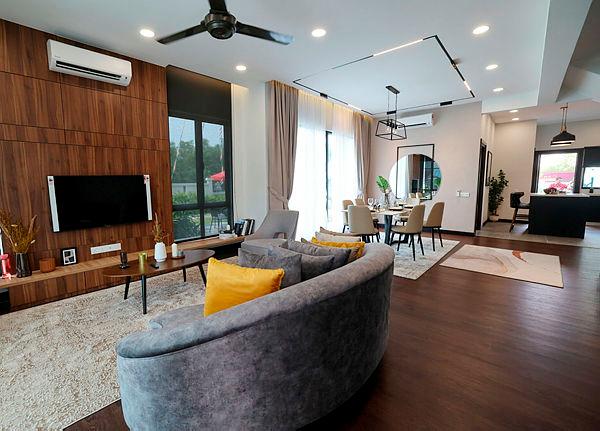PETALING JAYA: With Malaysians increasingly spending majority of their time indoors, experts are now warning of the significant health risks caused by indoor air pollutants (IAP).
Private hospital emergency services head and consultant physician Dr Siva Perumal said prolonged exposure to indoor air pollutants could lead to health problems such as respiratory issues, cancer, allergies and skin conditions.
“Exposure to indoor pollutants like particulate matter, tobacco smoke, and fumes from household products can worsen symptoms of Chronic Obstructive Pulmonary Disease.
“Some indoor pollutants, such as radon, formaldehyde, benzene, tobacco smoke and chemical fumes have been linked to an elevated risk of various cancers, including lung and kidney cancers.”
He also added that cognitive impairment and neurological effects can be linked to the effects of indoor air pollutants.
Siva said individuals with prolonged exposure to indoor pollutants, including airborne chemicals, have a higher risk of neurodegenerative diseases such as dementia and Parkinson’s disease.
“Older adults may be more susceptible to the health effects of indoor air pollution due to weakened immune systems and the presence of pre-existing health conditions.
“Low-income communities are more likely to live in housing with inadequate ventilation, overcrowding or rely on solid fuels for cooking and heating. These too can contribute to higher indoor pollution levels.”
The Clean Air Forum Society of Malaysia (MyCAS) deputy president Prof Dr Juliana Jalaludin said most individuals are aware that outdoor air pollution can significantly impact their health due to extensive coverage given to issues such as haze. However, not many realise that IAP is more detrimental.
“We face greater exposure to indoor air pollutants due to longer durations spent indoors. IAPs are usually higher in concentrations than ambient air pollutants, especially in urban areas.
“People believe staying indoors is better. But not many are mindful that IAP maybe two to five times higher than outdoor air pollutants. IAP should be given more attention because most of our time is spent indoors either at home, in classrooms or closed office spaces.”
Juliana said individuals should adopt crucial steps to control indoor humidity and stay informed about air quality issues.
“Additionally, refrain from indoor smoking, ensure responsible storage of household chemicals, and maintain Mechanical Ventilation and Air Conditioning (MVAC).”
Juliana said modern technologies and innovative solutions can significantly improve indoor air quality and should be implemented in households and office buildings.
“Advanced air purifiers nowadays feature efficient filters, smart MVAC systems equipped with sensors, UV-C light disinfection for germ elimination, designs that prioritise natural ventilation, and real-time air quality monitoring devices.”
She said the use of eco-friendly building materials, integration of biophilic design elements, and the application of technologies like electrostatic precipitators could also contribute to creating healthier indoor environments.
With a mission aimed at achieving improved air quality, Juliana has taken a leadership position in supervising a project aimed at improving indoor environment quality for educational institutions.
The initiative is integrated into the broader framework of the National Environmental Health Action Plan and is managed by the Health Ministry.
“MyCAS has played a vital role as the main consultant for the Clean Air Action Plan for Malaysia, which is a project initiated by the Environment Department,” she said.









